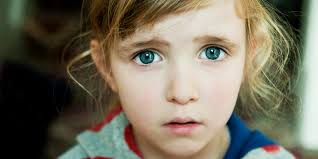 “I’m bored!” whines your child. What is he or she actually saying? According to research they are saying that they are perceiving that a task has little or no value to them, or it is too easy. Boredom is an unpleasant emotion that is composed of a lack of stimulation and a lack of physiological arousal (psychology speak here). Basically it means that whatever is going on isn’t engaging your child either mentally or physically. Occasionally, they may find a task too difficult and that can mean that the lack of engagement comes from the child not from the task. At school, this results in poor academic performance (Pekrun, Goetz, Daniels, Stupnisky, & Perry, 2010).  During the early ages of schooling, boredom like fear, disgust and anxiety can actually negatively impact brain development (Fox & Shonkoff, 2011; National Scientific Council On The Developing Child, 2010). They also negatively impact curiosity which then causes a negative spiral reducing a child’s future abilities dramatically (Perry, 2001). Perry says that curiosity is a major driver not only of learning but of brain development. It starts a chain which when properly fostered ends in a positive cycle of learning. The cycle begins with curiosity which enables exploration and discovery. But after something is discovered it is cemented by sharing it with others especially others that we love and respect like parents or teachers. Approval and rewards for the discovery continue the cycle; disapproval or lack of engagement stop it could. Boredom is an environment of lack of engagement and stops curiosity and learning in its tracks!  Just think about, for about $1 to $1.50 more an hour than paid day care, your child is in an environment at The Renaissance Preparatory Academy that is dedicated to the continued development of curiosity and a sense of wonder, or, in other words, an environment ripe for your child to be engaged in learning! The customized foundation learning gives your child the tools to be successful in the experiential learning found in the applied theme units. The result? Engaged learning that rapidly builds providing more opportunities and more brain development. Noted brain expert Laurence Steinberg, from Temple University, says “Adolescence is our last chance to make a difference.” (Woulfe, 2017). This means that all of the grades offered at The Renaissance Preparatory Academy (kindergarten through ninth grade) are critical ones for the development of your child’s brain and, thus, your child’s potential.  Email Janice Black TODAY about enrolling your child for a school experience that emphasizes curiosity, provides them with the tools they need to succeed and removes “boredom” from their vocabulary! Current promotions reduce the application, registration and even tuition (criteria and availability vary check out the Discounts page for more information!) References Fox, N., A., Shonkoff, J. P. (2011) How persistent fear and anxiety can affect young children’s learning, behavior and health, Early Childhood Matters, June 2011: 8-14. National Scientific Council on the Developing Child (2010). Persistent Fear and Anxiety Can Affect Young Children’s Learning and Development: Working Paper No. 9. Retrieved from www.developingchild.harvard.edu. Pekrun, R., Goetz, T., Daniels, L., Stupnisky, R., & Perry, R. (2010). Boredom in Achievement Settings: Exploring Control-Value Antecedents and Performance Outcomes of a Neglected Emotion. Journal of Educational Psychology, 102(3), 531-549. Perry, B. D. (2001) Emotional Development: Curiosity – The Fuel of Development, Early Childhood Today retrieved from https://www.scholastic.com/teachers/articles/teaching-content/emotional-development-curiosity-fuel-development/ Woulfe, C. (2017) Brain expert Laurence Steingberg: Routine and boredom are anathema to plasticity, New Zealand Listener, February 25, 2017. Retrieved from http://noted-cdn.azureedge.net/health/health/brain-expert-laurence-steinberg-routine-and-boredom-are-anathema-to-plasticity/
0 Comments
Leave a Reply. |
Founder's Blog by
|
|
We are an independent non-profit private school in the Myrtle Beach area that operates with rigorous academic standards, a commitment to developing all aspects of a child, an orientation that is respectful of religious organizations, and has a strong honor code.
A Project of the Social Good Fund | www.socialgoodfund.org
|
Proudly powered by Weebly
|
 RSS Feed
RSS Feed
